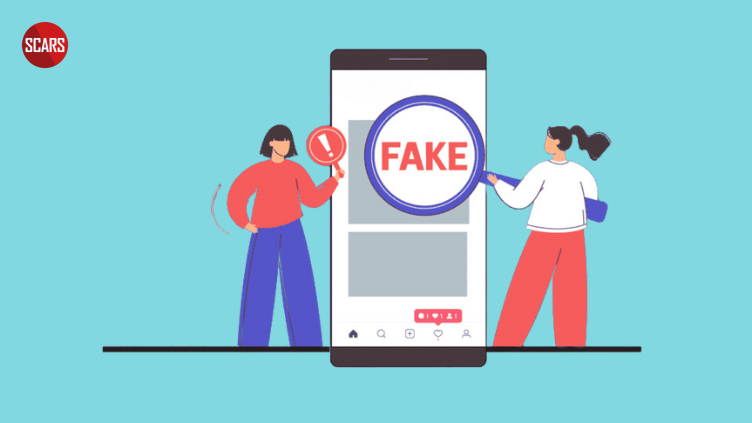Scam Victim Scammer Obsession – Part 4
Helping Scam Victims to Let Go of their Obsession on Exposing Scammers!
Primary Category: Scam Victim Recovery Psychology
Authors:
• Vianey Gonzalez B.Sc(Psych) – Licensed Psychologist, Specialty in Crime Victim Trauma Therapy, Neuropsychologist, Certified Deception Professional, Psychology Advisory Panel & Director of the Society of Citizens Against Relationship Scams Inc.
• Tim McGuinness, Ph.D., DFin, MCPO, MAnth – Anthropologist, Scientist, Polymath, Director of the Society of Citizens Against Relationship Scams Inc.
About This Article
Victims of relationship scams often experience intense emotions, including anger and a desire for justice, which can lead to an obsessive focus on exposing scammers and fake profiles. This behavior, while rooted in a need for validation and control, can hinder recovery and worsen trauma.
The pursuit of justice may overshadow other aspects of life, leading to burnout and increased emotional distress.
The neurological impact of this obsession can reinforce negative emotional loops, making it difficult for victims to move forward.
To recover, victims need to find a balance, prioritize self-care, and seek professional support to process their emotions and build resilience.
Note: This article is intended for informational purposes and does not replace professional medical advice. If you are experiencing distress, please consult a qualified mental health professional.

A Note About Labeling!
We often use the term ‘scam victim’ in our articles, but this is a convenience to help those searching for information in search engines like Google. It is just a convenience and has no deeper meaning. If you have come through such an experience, YOU are a Survivor! It was not your fault. You are not alone! Axios!
The Psychological Drive to Expose Scammers: Understanding this Scam Victim Obsession
The aftermath of a relationship scam can leave victims grappling with a complex mix of emotions, including anger, betrayal, and a strong desire for justice.
One common response among victims is an obsessive need to expose scammers and fake profiles, even at the cost of their own recovery. This behavior, while understandable, can dramatically hinder healing and worsen trauma.
The Drive for Justice and Validation
Scam victims feel violated and deceived, leading to a powerful urge to prevent others from experiencing similar harm.
This drive for justice can manifest as an intense focus on uncovering and exposing scammers.
Victims may spend hours online, searching for fake profiles and reporting them to authorities or social media platforms. This activity provides a sense of purpose and control, offering a way to counteract the helplessness felt during the scam.
The need for validation is another significant factor. Victims may seek acknowledgment of the scam’s impact, both from themselves and from others. Exposing scammers can serve as a way to validate their experience, proving that they were indeed wronged. It also provides a narrative where they transition from being victims to becoming proactive protectors of others.
The Psychological Toll
While the intention behind exposing scammers is noble, the obsessive pursuit can have detrimental effects.
This behavior often becomes all-consuming for those victims engaged in it, overshadowing other aspects of life and recovery. Victims often neglect their recovery, self-care, relationships, or work, focusing solely on the mission to expose scammers. This can lead to burnout, increased anxiety, and a prolonged state of emotional distress.
Moreover, constantly engaging with scammer-related content can re-traumatize victims. Repeatedly encountering scammers’ impersonations and stolen identities and hearing similar stories from other victims can reinforce feelings of anger, fear, and betrayal, particularly if the exposure rarely yields any real accomplishments. This cycle can keep victims stuck in a negative emotional loop, preventing them from moving forward.
Understanding the Neurological Impact
The neurological underpinnings of this obsession can be linked to the brain’s reward system. The act of exposing a scammer and potentially saving others triggers a release of dopamine, the brain’s reward chemical. This can create a reinforcing loop, where victims repeatedly seek out the rewarding feeling associated with exposing scammers.
However, this can also lead to an imbalance in emotional regulation. The amygdala, the brain’s emotional processing center, can become hyperactive, increasing feelings of fear and vigilance. Meanwhile, the prefrontal cortex, responsible for decision-making and impulse control, may become less active, making it harder to break the cycle of obsessive behavior.
Finding Balance: The Path to Recovery
It’s essential for scam victims to find a balance between seeking justice and prioritizing their own recovery.
While exposing scammers can feel like a form of empowerment, it’s important to set boundaries and allocate time for self-care and healing. Victims should consider seeking professional support providers and counseling, to process their emotions and develop healthy coping strategies.
Engaging in activities that promote positive emotions and self-growth is important and beneficial. This might include pursuing learning, building new relationships, or volunteering in ways that don’t center around scam exposure. By focusing on their own well-being, victims can gradually rebuild their sense of self and resilience.
While the drive to expose scammers is a common response among scam victims, it’s important to recognize the potential psychological toll. Focusing on the real goals of self-care and recovery will help victims move beyond their trauma and reclaim their lives.
Moving Forward
Letting go and moving forward begins with factual knowledge about these crimes, the criminals, and what they do to victims. SCARS recommends the following:
- Start learning properly at www.ScamVictimsSupport.org
- Sign up for FREE professional support services at support.AgainstScams.org
- Learn the facts to empower your recovery by enrolling in the FREE Scam Survivor’s School at www.SCARSeducation.org
- Find counseling or trauma therapy at counseling.AgainstScams.org
-/ 30 /-
What do you think about this?
Please share your thoughts in a comment below!
Statement About Victim Blaming
SCARS Institute articles examine different aspects of the scam victim experience, as well as those who may have been secondary victims. This work focuses on understanding victimization through the science of victimology, including common psychological and behavioral responses. The purpose is to help victims and survivors understand why these crimes occurred, reduce shame and self-blame, strengthen recovery programs and victim opportunities, and lower the risk of future victimization.
At times, these discussions may sound uncomfortable, overwhelming, or may be mistaken for blame. They are not. Scam victims are never blamed. Our goal is to explain the mechanisms of deception and the human responses that scammers exploit, and the processes that occur after the scam ends, so victims can better understand what happened to them and why it felt convincing at the time, and what the path looks like going forward.
Articles that address the psychology, neurology, physiology, and other characteristics of scams and the victim experience recognize that all people share cognitive and emotional traits that can be manipulated under the right conditions. These characteristics are not flaws. They are normal human functions that criminals deliberately exploit. Victims typically have little awareness of these mechanisms while a scam is unfolding and a very limited ability to control them. Awareness often comes only after the harm has occurred.
By explaining these processes, these articles help victims make sense of their experiences, understand common post-scam reactions, and identify ways to protect themselves moving forward. This knowledge supports recovery by replacing confusion and self-blame with clarity, context, and self-compassion.
Additional educational material on these topics is available at ScamPsychology.org – ScamsNOW.com and other SCARS Institute websites.
-/ 30 /-
What do you think about this?
Please share your thoughts in a comment below!
SCARS LINKS: AgainstScams.org RomanceScamsNOW.com ContraEstafas.org ScammerPhotos.com Anyscam.com ScamsNOW.com
reporting.AgainstScams.org support.AgainstScams.org membership.AgainstScams.org donate.AgainstScams.org shop.AgainstScams.org
youtube.AgainstScams.org linkedin.AgainstScams.org facebook.AgainstScams.org
Important Information for New Scam Victims
- Please visit www.ScamVictimsSupport.org – a SCARS Website for New Scam Victims & Sextortion Victims.
- SCARS Institute now offers its free, safe, and private Scam Survivor’s Support Community at www.SCARScommunity.org – this is not on a social media platform, it is our own safe & secure platform created by the SCARS Institute especially for scam victims & survivors.
- SCARS Institute now offers a free recovery learning program at www.SCARSeducation.org.
- Please visit www.ScamPsychology.org – to more fully understand the psychological concepts involved in scams and scam victim recovery.
If you are looking for local trauma counselors, please visit counseling.AgainstScams.org
If you need to speak with someone now, you can dial 988 or find phone numbers for crisis hotlines all around the world here: www.opencounseling.com/suicide-hotlines
Statement About Victim Blaming
Some of our articles discuss various aspects of victims. This is both about better understanding victims (the science of victimology) and their behaviors and psychology. This helps us to educate victims/survivors about why these crimes happened and not to blame themselves, better develop recovery programs, and help victims avoid scams in the future. At times, this may sound like blaming the victim, but it does not blame scam victims; we are simply explaining the hows and whys of the experience victims have.
These articles, about the Psychology of Scams or Victim Psychology – meaning that all humans have psychological or cognitive characteristics in common that can either be exploited or work against us – help us all to understand the unique challenges victims face before, during, and after scams, fraud, or cybercrimes. These sometimes talk about some of the vulnerabilities the scammers exploit. Victims rarely have control of them or are even aware of them, until something like a scam happens, and then they can learn how their mind works and how to overcome these mechanisms.
Articles like these help victims and others understand these processes and how to help prevent them from being exploited again or to help them recover more easily by understanding their post-scam behaviors. Learn more about the Psychology of Scams at www.ScamPsychology.org
SCARS INSTITUTE RESOURCES:
If You Have Been Victimized By A Scam Or Cybercrime
♦ If you are a victim of scams, go to www.ScamVictimsSupport.org for real knowledge and help
♦ SCARS Institute now offers its free, safe, and private Scam Survivor’s Support Community at www.SCARScommunity.org/register – this is not on a social media platform, it is our own safe & secure platform created by the SCARS Institute especially for scam victims & survivors.
♦ Enroll in SCARS Scam Survivor’s School now at www.SCARSeducation.org
♦ To report criminals, visit https://reporting.AgainstScams.org – we will NEVER give your data to money recovery companies like some do!
♦ Follow us and find our podcasts, webinars, and helpful videos on YouTube: https://www.youtube.com/@RomancescamsNowcom
♦ Learn about the Psychology of Scams at www.ScamPsychology.org
♦ Dig deeper into the reality of scams, fraud, and cybercrime at www.ScamsNOW.com and www.RomanceScamsNOW.com
♦ Scam Survivor’s Stories: www.ScamSurvivorStories.org
♦ For Scam Victim Advocates visit www.ScamVictimsAdvocates.org
♦ See more scammer photos on www.ScammerPhotos.com
You can also find the SCARS Institute’s knowledge and information on Facebook, Instagram, X, LinkedIn, and TruthSocial
Psychology Disclaimer:
All articles about psychology and the human brain on this website are for information & education only
The information provided in this and other SCARS articles are intended for educational and self-help purposes only and should not be construed as a substitute for professional therapy or counseling.
Note about Mindfulness: Mindfulness practices have the potential to create psychological distress for some individuals. Please consult a mental health professional or experienced meditation instructor for guidance should you encounter difficulties.
While any self-help techniques outlined herein may be beneficial for scam victims seeking to recover from their experience and move towards recovery, it is important to consult with a qualified mental health professional before initiating any course of action. Each individual’s experience and needs are unique, and what works for one person may not be suitable for another.
Additionally, any approach may not be appropriate for individuals with certain pre-existing mental health conditions or trauma histories. It is advisable to seek guidance from a licensed therapist or counselor who can provide personalized support, guidance, and treatment tailored to your specific needs.
If you are experiencing significant distress or emotional difficulties related to a scam or other traumatic event, please consult your doctor or mental health provider for appropriate care and support.
Also read our SCARS Institute Statement about Professional Care for Scam Victims – click here
If you are in crisis, feeling desperate, or in despair, please call 988 or your local crisis hotline – international numbers here.
More ScamsNOW.com Articles
A Question of Trust
At the SCARS Institute, we invite you to do your own research on the topics we speak about and publish. Our team investigates the subject being discussed, especially when it comes to understanding the scam victims-survivors’ experience. You can do Google searches, but in many cases, you will have to wade through scientific papers and studies. However, remember that biases and perspectives matter and influence the outcome. Regardless, we encourage you to explore these topics as thoroughly as you can for your own awareness.















![NavyLogo@4x-81[1] Scam Victim Scammer Obsession - Part 4 - 2024](https://scamsnow.com/wp-content/uploads/2025/04/NavyLogo@4x-811.png)









![scars-institute[1] Scam Victim Scammer Obsession - Part 4 - 2024](https://scamsnow.com/wp-content/uploads/2025/04/scars-institute1.png)

![niprc1.png1_-150×1501-1[1] Scam Victim Scammer Obsession - Part 4 - 2024](https://scamsnow.com/wp-content/uploads/2025/04/niprc1.png1_-150x1501-11.webp)